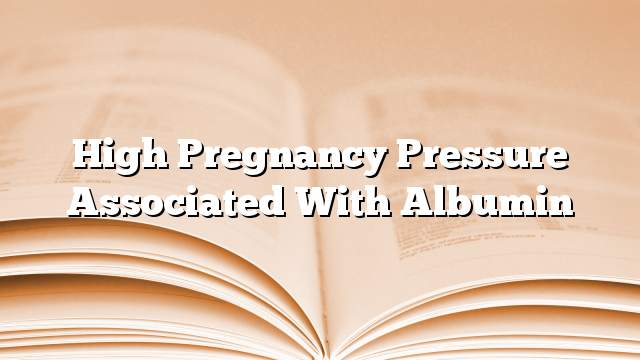Known as eclampsia or preeclampsia, is common and affects 5% of pregnant women.
Usually occurs after the 20th week of pregnancy and its cause is not known and usually has no symptoms discovered when measuring pressure or urine test.
It is mild and does not affect pregnancy but may develop into a serious condition of 5% that threatens the life of the mother and fetus. Symptoms usually occur late in pregnancy or just after birth.
- Severe headache without laxatives
- Problems seen as gambles or flashing
- Hearing problems such as numbness
- Head pain in the upper abdomen and right side
- Acidity in the stomach is not responsive to drugs
- Fast and severe swelling of the face, shoulders or feet
- Sudden increase in weight
- Feeling uncomfortable
- Blood clotting in the legs or lungs
- Fibrillation is called Alrjaj very rare
The placenta may affect the fetus’s feeding, reducing its growth or the amount of water around it, which may cause fetal death.
It can get any pregnancy but more in the following cases:
- The patient has high pressure by pregnancy or high pressure in a previous pregnancy or has a kidney disease or the immune system and diabetes disease
- First pregnancy or pregnancy with more than one fetus
- The age is greater than forty years
- The last pregnancy was more than 10 years ago
- The mother or sister has been hit
Aspirin can be taken at a low dose and taking omega-3 and vitamin D may help reduce incidence.
The supervision must be supervised by a consultant in the hospital where the measurement of pressure regularly and you may be given medicine to reduce pressure
- The amount of protein in the urine and some blood tests will be checked
- The fetus’s pulse will be monitored, its growth measured, and the amount of water around it will be determined by the sonar
- Patients are monitored briefly in the hospital in light cases. Therefore, we can follow the pregnant woman in the clinic. We recommend that you give birth at week 37 or earlier if there is a danger to the fetus by induction of labor
A medical team will take care of you and you will be born as soon as possible, which may lead to caesarean section. The pressure will be reduced and you will be given a medicine that prevents your seizures and keeps you under close surveillance. In severe cases, the patient may need to be admitted to the intensive care unit.
Ejaculation usually disappears only if it is severe. The complications may persist during the first week of birth. This requires keeping you under observation and you may need to continue taking the pressure-reducing drugs.
In the case of premature birth may require the introduction of the child to prematurity and this does not prevent breastfeeding. When you go home, you have to monitor the pressure and take the necessary treatments and you should measure the pressure and examination of urine after two months of birth to determine the stability of the situation or not. If the pressure is still high and the protein in the urine should be reviewed the doctor of internal diseases.
Frequency in future loads:
15% have the condition of subsequent pregnancy
For those who suffer from severe ejaculation or orgasm, 50% of them will be pre-eclampsia, which may require birth before the 28th week of pregnancy, and 25% of them will become pre-eclampsia, which may require birth before the 34th week.
